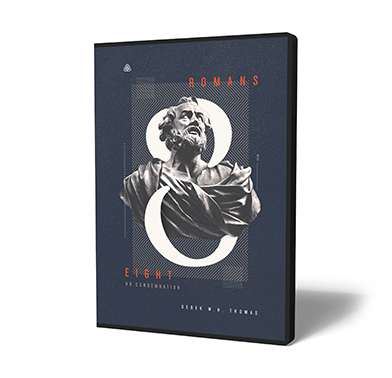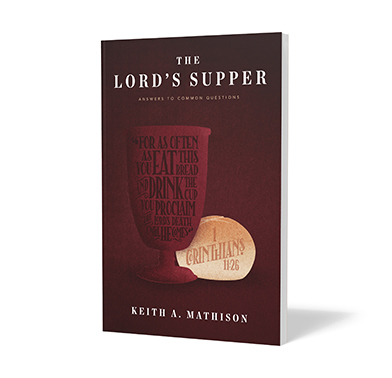R.C. Sproul's Blog, page 129
August 17, 2019
Did the Early Church Baptize Children?

In this brief clip from his teaching series A Survey of Church History, W. Robert Godfrey explains how much we can know about the practice of baptism in the first 300 years of church history. Watch this entire message for free.
Transcript
And as is too often the case with ancient church history is we can’t be as certain as we’d like to be. We certainly know that by 300 the universal practice of the ancient church was to baptize children, to baptize the children of believers. The problem is what happened before 300 and how certain can we be about it? A number of years ago now two German Lutheran scholars marshaled all of their vast learning, one to say the early church did baptize infants, that is very early, and another to say the evidence just isn’t clear. Part of the problem in evaluating evidence is you can quote an early father saying, “We baptize children,” but that doesn’t tell you how old the children were. Obviously it’s one thing if you baptized a one-month-old, it’s something very different if you baptized a thirteen-year-old, and yet they’re both children. And so when we look at the evidence in the early church in the second and third century, the evidence is simply inconclusive. I don’t think either side of this debate can entirely win, which is okay because in the end of the day history doesn’t answer this question. The Bible answers the question, theological reflection on the Bible answers that question, and that’s really the way it ought to be.


August 16, 2019
Can a Person Be 100% Sure of His or Her Salvation?

Is it possible to know with certainty that we are saved? From one of our Ask R.C. events, R.C. Sproul clarifies our Scriptural mandate to pursue assurance of salvation.
To get real-time answers to your biblical and theological questions, just Ask.Ligonier.org.
Read the Transcript


Does the Bible Have Errors?

"The Bible is the Word of God, which errs." From the advent of neoorthodox theology in the early twentieth century, this assertion has become a mantra among those who want to have a high view of Scripture while avoiding the academic liability of asserting biblical infallibility and inerrancy. But this statement represents the classic case of having one's cake and eating it too. It is the quintessential oxymoron.
Let us look again at this untenable theological formula. If we eliminate the first part, "The Bible is," we get "The Word of God, which errs." If we parse it further and scratch out "the Word of" and "which," we reach the bottom line:
"God errs."
The idea that God errs in any way, in any place, or in any endeavor is repugnant to the mind as well as the soul. Here, biblical criticism reaches the nadir of biblical vandalism.
How could any sentient creature conceive of a formula that speaks of the Word of God as errant? It would seem obvious that if a book is the Word of God, it does not (indeed, cannot) err. If it errs, then it is not (indeed, cannot be) the Word of God.
To attribute to God any errancy or fallibility is dialectical theology with a vengeance.
Perhaps we can resolve the antinomy by saying that the Bible originates with God's divine revelation, which carries the mark of his infallible truth, but this revelation is mediated through human authors, who, by virtue of their humanity, taint and corrupt that original revelation by their penchant for error. Errare humanum est ("To err is human"), cried Karl Barth, insisting that by denying error, one is left with a docetic Bible—a Bible that merely "seems" to be human, but is in reality only a product of a phantom humanity.
Who would argue against the human proclivity for error? Indeed, that proclivity is the reason for the biblical concepts of inspiration and divine superintendence of Scripture. Classic orthodox theology has always maintained that the Holy Spirit overcomes human error in producing the biblical text.
Barth said the Bible is the "Word" (verbum) of God, but not the "words" (verba) of God. With this act of theological gymnastics, he hoped to solve the unsolvable dilemma of calling the Bible the Word of God, which errs. If the Bible is errant, then it is a book of human reflection on divine revelation—just another human volume of theology. It may have deep theological insight, but it is not the Word of God.
Critics of inerrancy argue that the doctrine is an invention of seventeenth-century Protestant scholasticism, where reason trumped revelation—which would mean it was not the doctrine of the magisterial Reformers. For example, they note that Martin Luther never used the term inerrancy. That's correct. What he said was that the Scriptures never err. Neither did John Calvin use the term. He said that the Bible should be received as if we heard its words audibly from the mouth of God. The Reformers, though, not using the term inerrancy, clearly articulated the concept.
Irenaeus lived long before the seventeenth century, as did Augustine, Paul the apostle, and Jesus. These all, among others, clearly taught the absolute truthfulness of Scripture.
The church's defense of inerrancy rests upon the church's confidence in the view of Scripture held and taught by Jesus himself. We wish to have a view of Scripture that is neither higher nor lower than his view.
The full trustworthiness of sacred Scripture must be defended in every generation, against every criticism.
This excerpt is adapted from R.C. Sproul's foreword in The Inerrant Word: Biblical, Historical, Theological, and Pastoral Perspectives by John MacArthur, ©2016. Used by permission of Crossway, a publishing ministry of Good News Publishers, Wheaton, Il 60187, Crossway.org.


August 15, 2019
$5 Friday: Joy, Grace, & Scripture

It’s time for our weekly $5 Friday sale. This week’s resources include such topics as Scripture, covenants, joy, apologetics, preaching, evangelism, George Whitefield, grace, and more
Sale runs through 12:01 a.m. — 11:59 p.m. Friday ET.
View today’s $5 Friday sale items.


What's the Greatest Chapter in the Bible?

What is your favorite chapter in the Bible? My friend and fellow Teaching Fellow Derek Thomas says Romans 8 is the greatest chapter in the whole Bible. That doesn’t mean it is any more God-breathed than Ezra 2, but it is certainly more directly applicable to our lives.
When you support Ligonier Ministries this month, we’ll send you Derek Thomas’ new teaching series on Romans 8 so that you can see why he calls it the greatest chapter in the Bible.
Romans 8 has almost everything. It begins with our justification by grace alone through faith alone in Christ alone (vv. 1–4), continues with sanctification and the work of the Holy Spirit (vv. 5–13), and then speaks about our adopted sonship with the Father (vv. 14–17), the significance of suffering (vv. 17–18), the prospect of glory (vv. 17–18), the final redemption of our bodies (vv. 17–25), and the restoration of all creation (vv. 19–21). It reassures us that as we wait for our resurrection and final transformation (vv. 23–24), the Spirit helps us in our weakness (v. 26) and intercedes for us (vv. 26–27).
It teaches us about the good and sovereign providence of God in our lives (v. 28), and that His goal is to transform us into the likeness of Christ (v. 29). Indeed, Paul says, nothing can stop God from bringing that to pass (v. 30). No one can successfully oppose us, bring any charge against us, condemn us, or finally separate us from God’s love for us in Christ (vv. 31–39).
This is breathtaking theology!
That is the point, isn’t it? Romans 8 is not merely breathtaking eloquence. It is the theology of these verses that puts backbone into Paul’s life—and it can put backbone into our lives too.
R.C. Sproul understood that theology makes a difference. It is always practical, always life changing. That is why theology is meant for every Christian. All the theology of the Word of God to all the people of God.
That vision and calling lie at the heart of Ligonier’s ministry.
In God’s goodness, that vision is spreading, and the avenues through which it is being communicated are increasing. This increase has been possible only because of the partnership, love, prayers, and sacrificial generosity of Ligonier’s partners and supporters like you.
So, I would like to commend the ministry and the whole staff to your love, to your prayers, and, as God enables you, to your financial support.
Yes, the needs are breathtaking—but the breathtaking theology of Romans 8 is still true. And so, it is especially appropriate (and joyful to me personally) that as a thank-you for any gift you make this month, Ligonier will send you a copy of Derek Thomas’ video teaching series on “the greatest chapter in the Bible.” I think you will enjoy it tremendously.
And in the meantime, may you taste all the blessings of Romans 8.
Donate Now
Offer expires October 31, 2019. U.S. and Canada only. Please allow up to six weeks for delivery after your gift is processed.


Matthew 7:1
Here’s an excerpt from Matthew 7:1, Tim Witmer's contribution to the August issue of Tabletalk:
Few texts are more misunderstood in our day than Matthew 7:1: “Judge not, that you be not judged.” It often comes up in conversations when one dares to make a moral assessment of another person that rubs the hearer the wrong way. “Who are you to judge?” comes the retort.
What kind of “judging” is Jesus talking about? As in all cases, the context is a great help in understanding what Jesus is getting at. This text is in the Sermon on the Mount, which demonstrates the nature of true righteousness versus superficial religion. In this text, Jesus is concerned about the hypocrisy of the double standard. The proof of His point is in the illustration that follows in verses 3–5.
Continue reading Matthew 7:1, or begin receiving Tabletalk magazine by signing up for a free 3-month trial.
For a limited time, the new TabletalkMagazine.com allows everyone to browse and read the growing library of back issues, including this month’s issue.


August 14, 2019
When God Is Your Refuge, You Are Immovable.
In this brief clip from our 2012 West Coast Conference, Steven Lawson examines David's words in Psalm 14:6: “You would put to shame the counsel of the afflicted, but the LORD is his refuge.”
Transcript
This is God speaking through David to the atheist, “you would put to shame the counsel of the afflicted.” The counsel refers to the truth about God. The afflicted referred to the believers whom they have sought to intimidate, and badger, and persecute, and come against. They are afflicted because the atheist has risen up in his voice and has sought to bring much perversity, and difficulty, and affliction upon the godly. David says, you would put to shame, you would intimidate, you would seek to do harm to the counsel of the afflicted. Please note, they would put to shame not just the afflicted, the person referring to the believers; what they hate is the counsel of the afflicted. What they hate is the mention of the name of God. What they hate is being told of their accountability to this God. What they hate is the name of the Lord Jesus Christ, and they seek to put to shame not the messenger but the message of God Himself. Make no mistake about this; they rise up in their unholy hatred against God Himself and the counsel of the gospel that we would bring.
But note the complete antithesis. Note the stark contrast, “But.” “But the Lord is His refuge.” It refers to you and to me who are the afflicted of this world. “As all who desire to live godly in Christ, Jesus shall suffer persecution.” You know living in Seattle is a great challenge; this is not the buckle of the Bible Belt y’all. There is much darkness, and it’s not just from the clouds overhead. There is a great moral and spiritual darkness in this land, and you are trophies of God’s grace. God has rooted you and planted you in a very important place where you are the remnant. You are those who are standing in the gap and who have been called upon by God to continue the work of God here. As you look to your left and to your right, you do not see vast numbers of men and women standing with you for the cause of Christ. But you look up, and you see your God and you are reminded that God plus one always makes a majority. God is your refuge. God is your stronghold. God is your fortress, and it matters not how the atheists would rage against you and how liberalism that would seek to throw off any divine authority would seek to squeeze the life out of you. God is your refuge. You can stand against any gathering storm that would swirl in this area and to bring opposition against your faith. In fact, the greater the storm, the deeper the roots of the tree grow. No one can take God down, and when God is your refuge, you are immovable.


What Is the Lord’s Supper?

Have you ever noticed the strangeness of the Lord’s Supper? Many of us have been attending church for so many years that this thing we do every week or every month has become somewhat routine. Its strangeness no longer strikes us. But step back and imagine what it looks like to someone attending a church for the first time. Imagine what it looks like to a child. With some differences among churches in the details of the liturgy, the members of the church receive bread, which they eat in a ceremonial way after the pastor repeats the words of Jesus: “This is my body.” Then they receive wine (or grape juice), which they ceremonially drink after the pastor repeats the words of Jesus: “This cup is the new covenant in my blood.” What in the world is going on here? What is the Lord’s Supper?
Scripture anticipates that the sacraments instituted by God will raise questions among believers. When the Passover was instituted, for instance, Moses said, “And when your children say to you, ‘What do you mean by this service?’ you shall say, ‘It is the sacrifice of the Lord’s Passover, for he passed over the houses of the people of Israel in Egypt, when he struck the Egyptians but spared our houses’” (Ex. 12:26–27). The Lord knew that the Passover would require explanation. He knew that Israelite children would wonder about the meaning of the rituals. We should expect nothing different when it comes to our children and the Lord’s Supper. But do we know how to answer such questions? What do we say when our children ask, “What do you mean by this service?”
Christians in the Reformed tradition have studied Scripture extensively in order to answer such questions. The results of this study are found in the Reformed confessions and catechisms. The Westminster Larger Catechism, for example, provides a concise answer to the question, “What is the Lord’s Supper?” “The Lord’s Supper is a sacrament of the New Testament, wherein, by giving and receiving bread and wine according to the appointment of Jesus Christ, his death is showed forth; and they that worthily communicate feed upon his body and blood, to their spiritual nourishment and growth in grace; have their union and communion with him confirmed; testify and renew their thankfulness, and engagement to God, and their mutual love and fellowship each with the other, as members of the same mystical body” (WLC 168). This definition reveals how intertwined the doctrine of the Lord’s Supper is with other Christian doctrines. In this catechism alone, there are 167 questions and answers before we get to the Lord’s Supper, and much of what is taught in the earlier questions is assumed here. It is important, therefore, to know that our answer to the question, “What is the Lord’s Supper?” cannot be understood in isolation from other Christian doctrines. It is not possible to fully grasp the Reformed doctrine of the Lord’s Supper without some understanding of the doctrines of God, Scripture, sin, salvation, the incarnation, the church, and more.
We see in the catechism’s answer, for example, that the Lord’s Supper is a sacrament. But that answer is not helpful if we do not have some idea of the nature of a sacrament. Additional problems arise because many who hear the word sacrament associate it with mysticism or ceremonialism. Some associate it with Roman Catholicism and cannot imagine why a Protestant church would continue to use such a loaded term. There is a fear that the use of the word might be allowing the camel’s nose under the tent, and if the nose is there, the camel cannot be far behind.
This is one reason why the study of the Reformation and the confessions of the Reformation can be incredibly helpful. The Reformers had no fear of the word sacrament and no qualms about its continued use, and they, better than anyone today, knew the dangers of late-medieval Roman Catholicism. In addition, the Reformed churches of the following generations had no fear of the word. Almost every sixteenth- and seventeenth-century Reformed confession has a chapter titled “On the Sacraments,” and Reformed theologians have used the word for centuries. As long as we define it carefully, it is a perfectly appropriate word. How, then, is the word sacrament defined? The Westminster Larger Catechism is again helpful, explaining that a sacrament is “a holy ordinance instituted by Christ in his church, to signify, seal, and exhibit unto those that are within the covenant of grace, the benefits of his mediation; to strengthen and increase their faith, and all other graces; to oblige them to obedience; to testify and cherish their love and communion one with another; and to distinguish them from those that are without” (WLC 162). The catechism goes on to explain that sacraments have two parts: a visible outward sign and the spiritual reality signified by the sign (WLC 163). Reformed churches teach that there are only two such sacraments instituted by Jesus Christ under the new covenant: baptism and the Lord’s Supper.
The Lord’s Supper is a sacrament of the New Testament or new covenant, instituted by Jesus Christ in the upper room on the night on which He was betrayed (Matt. 26:26–29; Mark 14:22–25; Luke 22:14–23; 1 Cor. 11:23–26). Because it is a sacrament, the Lord’s Supper signifies, seals, and exhibits to believing partakers “the benefits of his [Christ’s] mediation.”
What do we mean when we say that the Lord’s Supper signifies, seals, and exhibits the benefits of Christ’s mediation? Let us look first at the word signifies. Sacraments have two parts: a visible outward sign and the reality signified by that sign. In the Lord’s Supper, the visible outward sign is the giving and receiving of bread and wine. The bread and wine signify Christ crucified and His benefits (WCF 29.5, 7). More specifically, the bread is the sign of Christ’s body, and the wine is the sign of His blood (Matt. 26:26–28; 1 Cor. 10:16). In our day, when we hear the word sign, we often think of a road sign that conveys information or a symbol such as the pound sign (#, now more often known as a hashtag). This is not exactly what is meant when we refer to the bread and wine as signs of the body and blood of Christ crucified, because in the Lord’s Supper there is “a spiritual relation, or sacramental union, between the sign and the thing signified” (WCF 27.2). Because of the sacramental union, a sacramental sign is distinguished from that which it signifies, but it is not separated from it. We will return to this idea of sacramental union repeatedly, so it is important to keep it in mind.
What does it mean to say that the Lord’s Supper “seals” the benefits of Christ’s mediation? Paul, in Romans 4:11, speaks of Abraham’s circumcision as “a seal of the righteousness that he had by faith while he was still uncircumcised.” The context indicates that circumcision was a seal in the sense that it confirmed the reality of the thing signified, namely, the righteousness Abraham had by faith. Circumcision authenticated it. Similarly, the Lord’s Supper is a seal in the sense that it confirms and authenticates the promise of God regarding the reality of the benefits received by those who partake of the supper in faith. It indicates that the supper is no mere empty ceremony. Those who partake in faith are assured that they actually do “feed upon his body and blood, to their spiritual nourishment and growth in grace; have their union and communion with him confirmed; testify and renew their thankfulness, and engagement to God, and their mutual love and fellowship each with the other, as members of the same mystical body” (WLC 168).
Finally, what is meant by the word exhibits? What does it mean to say that the Lord’s Supper exhibits the benefits of Christ’s mediation? Again, the Westminster Confession provides a helpful place to begin thinking through the answer to this question: “The grace which is exhibited in or by the sacraments rightly used, is not conferred by any power in them; neither doth the efficacy of a sacrament depend upon the piety or intention of him that doth administer it: but upon the work of the Spirit, and the word of institution, which contains, together with a precept authorizing the use thereof, a promise of benefit to worthy receivers” (WCF 27.3). To exhibit is to hold forth. The benefits of Christ are actually held forth to believers in this sacrament. The confession here explains what this does not mean. To say that the supper exhibits the benefits of Christ’s mediation does not mean that the bread and wine have any power in and of themselves. Furthermore, the exhibition of the benefits does not depend on the holiness or intent of the minister. It depends solely on the work of the Spirit and the promise of God found in the words of institution.
What, then, are the actual benefits? What actually does happen by the power of the Holy Spirit according to the promise of God? The Westminster Confession states: “Worthy receivers outwardly partaking of the visible elements in this sacrament, do then also, inwardly by faith, really and indeed, yet not and corporally, but spiritually, receive and feed upon Christ crucified, and all benefits of His death: the body and blood of Christ being then, not corporally or carnally, in, with, or under the bread and wine; yet, as really, but spiritually, present to the faith of believers in that ordinance, as the elements themselves are to their outward senses” (WCF 29.7). The confession points out a parallel between what is happening “outwardly” and what is happening “inwardly.”
It is worth examining the main clauses before looking at the qualifying clauses lest we miss the main points. According to the confession, worthy partakers, namely, those with faith, who partake of the visible elements (bread and wine) “really and indeed . . . receive and feed upon Christ crucified, and all benefits of His death.” The “body and blood of Christ” are present “to the faith of believers” as the elements of bread and wine are present “to their outward senses.” The outward-inward distinction continues throughout the entire paragraph.
Clearly, the confession makes the point that this is not to be understood in some crass materialistic sense. Believers really and indeed “receive and feed upon Christ crucified” but not “carnally or corporally.” This happens spiritually because the body and blood of Christ are present to the faith of believers rather than corporally or carnally present “in, with, or under the bread and wine.” As the Westminster Larger Catechism puts it, “They that worthily communicate in the sacrament of the Lord’s Supper, do therein feed upon the body and blood of Christ, not after a corporal and carnal, but in a spiritual manner; yet truly and really, while by faith they receive and apply unto themselves Christ crucified, and all the benefits of his death” (WLC 170).
This excerpt is adapted from The Lord’s Supper: Answers to Common Questions by Keith Mathison. Available now in the Ligonier store.


August 13, 2019
The Lord’s Supper: Answers to Common Questions, New from Keith Mathison and Reformation Trust

As Jesus was celebrating His final Passover meal, He made some bold statements. First, He took the bread and said, “This is my body.” Next, He took the cup, saying, “This is my blood.” He then commanded the disciples to eat and drink in remembrance of Him.
What did Jesus mean? Do the bread and wine literally become His body and blood? What happens when Christians take the Lord’s Supper?
In The Lord’s Supper: Answers to Common Questions, Dr. Keith Mathison walks through these questions and several others to help us better understand this sacrament. Far from being an empty ritual, the Lord’s Supper is a means of grace, a source of spiritual nourishment, and true communion with Christ and His church.
“This is an excellent introduction to the Lord’s Supper. Dr. Keith Mathison unfolds the biblical teaching, answers a range of common questions, and provides wise counsel on practical matters, including the relationship of young children to the communion service.”
—Dr. Robert Letham
Professor of systematic and historical theology at Union School of Theology, Oxford, England
“This book is useful not only for young Christians and new believers, but also for those who have attended church for years and have never really realized what is going on during the Lord’s Supper.”
—Dr. Augustus Nicodemus Lopes
Vice president of Presbyterian Church of Brazil
Available now from the ReformationTrust.com.
EPUB $6.00
MOBI $6.00
Paperback for $10.00 $8.00
Five copies for $50.00 $37.50
Ten copies for $100.00 $65.00
Dr. Keith A. Mathison is professor of systematic theology at Reformation Bible College in Sanford, Fla. He is author of many books, including Given For You: Reclaiming Calvin’s Doctrine of the Lord’s Supper.


Jeremiah 29:11
Here’s an excerpt from Jeremiah 29:11, Kevin D. Gardner's contribution to the August issue of Tabletalk:
Jeremiah 29:11 contains a precious promise held dear by Christians the world over. It is also likely one of the most misapplied verses in all of Scripture. In this verse, Jeremiah affirms that God is in control, and moreover, He has good things in store: “For I know the plans I have for you, declares the LORD, plans for welfare and not for evil, to give you a future and a hope.”
Comforting words, to be sure. But what does Jeremiah mean? Some have taken this verse and applied it to themselves and others in an unqualified way. “God loves you and has a wonderful plan for your life,” they say. “He has mapped out the course of your life, and you only have to be obedient to Him to step into His blessing.”
Some go further and say that this verse promises earthly prosperity. Health and wealth are the lot of Christians. We are not to settle for second best, for we are children of the King. In this view, suffering and deprivation signal a lack of faith.
Continue reading Jeremiah 29:11, or begin receiving Tabletalk magazine by signing up for a free 3-month trial.
For a limited time, the new TabletalkMagazine.com allows everyone to browse and read the growing library of back issues, including this month’s issue.


R.C. Sproul's Blog
- R.C. Sproul's profile
- 1933 followers





